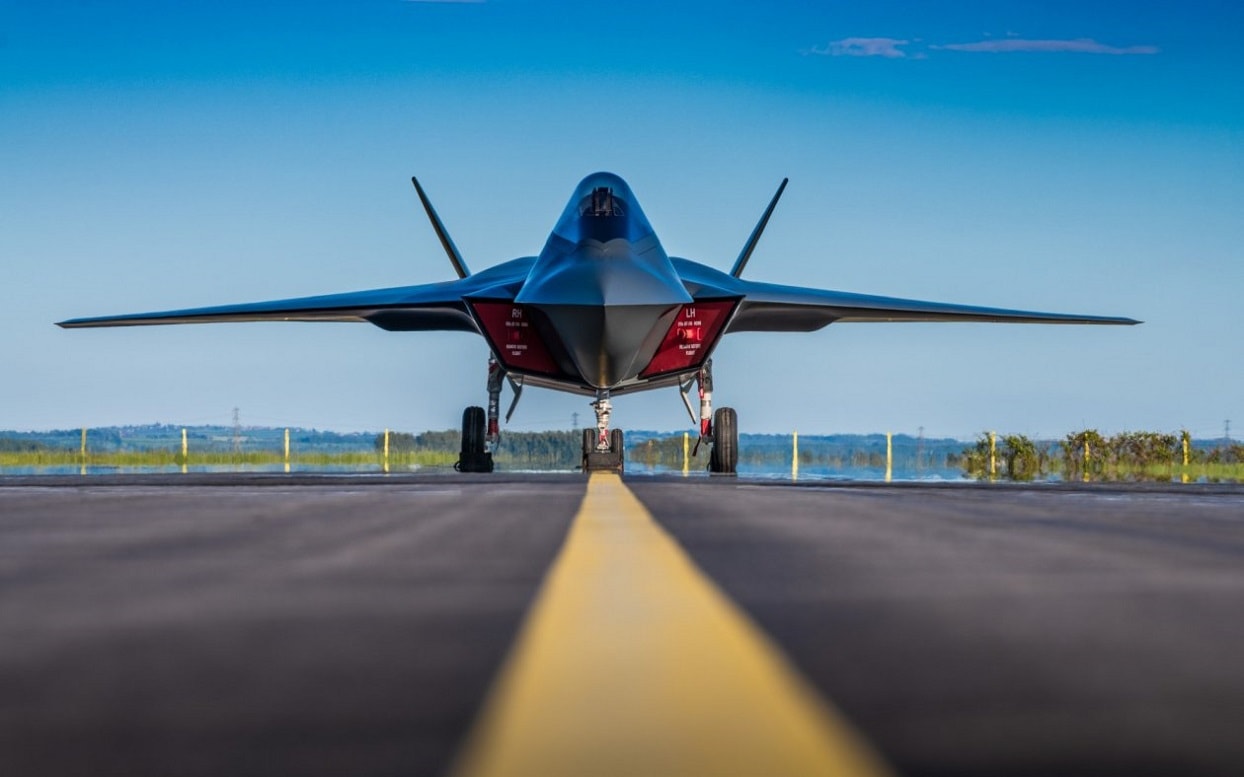Fifth-generation fighter aircraft debuted only recently and are still somewhat novel. Only a handful of nations have ever designed and produced their own fifth-generation aircraft. The U.S. has the F-22 and F-35, China has the J-20, and Russia has ten Su-57s. Fifth-generation fighters are still very much on the cutting edge of military technology, and they are too expensive or advanced for most of the world’s air forces. Yet from America and Europe, to India and China, programs are underway to create the world’s first sixth-generation fighter.
In Europe, the United Kingdom is leading a multi-nation effort to create the BAE Tempest.
According to BAE’s website, the Tempest is intended to deliver “a capable, flexible and affordable system by the mid-2030s, providing military, economic and industrial benefit to the UK and our international partners.”
Several entities have joined BAE to produce the Tempest, including Rolls-Royce, Leonardo, the British Ministry of Defense, MBDA, and Saab. Details on the project are light, but a document from the Ministry of Defense describes the Tempest as “an aircraft, manned or unmanned, whose prime function is to conduct air-to-air and/or air-to-surface combat operations in a hostile and/or contested environment, whilst having the ability to concurrently conduct surveillance, reconnaissance, electronic warfare and command, and control tasks.” By 2025, 2 billion pounds will have been spent developing the Tempest.
A mock-up of the Tempest was unveiled at the 2019 DSEI, granting some insight into the plane’s design. The aircraft has delta wings and outward-pointing vertical stabilizers. To earn the sixth-generation tag, the Tempest should be able to fly unmanned, and to use swarming technology to control drones. Of course, the Tempest will have stealth features, allowing the plane to penetrate contested airspace. The aircraft is also expected to feature artificial intelligence, deep learning, and increased network connectivity. Those last two features are where sixth-generation airframes will be most improved, and to this end the Tempest will be jam-packed with sensors such as advanced radars and multi-spectral cameras, plus various data links and communications equipment.
Like all advanced fighters, the Tempest is being designed to give the pilot as much information about the battlespace as possible, while also being able to share that information with other networks.
Rolls-Royce is working to develop the Tempest’s engines. The company is using composite materials to create something lightweight and affordable with improved thermal management. The aircraft will feature two engines. These will be deeply embedded within the aircraft to reduce observability.
The United Kingdom hopes to fly a Tempest by 2025, with deliveries beginning in 2035. Observers are skeptical that such an ambitious timeline can be maintained. The U.K. does not have a great track record of creating advanced fighters. In the 1990s, the Royal Air Force initiated the Future Offensive Air System program, but the FOAS was canceled in 2005 before ever flying. Instead of seeing the program through, the U.K. purchased the American F-35 Joint Strike Fighter.
The U.S., undoubtedly the leader in advanced aircraft development, is also in the early stages of sixth-generation fighter development. The Next Generation Air Dominance program and the F/A-XX Program are meant to phase out fourth-generation fighters while complementing fifth-generation fighters. Depending on how the Tempest program progresses, perhaps the U.S. will export sixth-generation fighters to the U.K., too.
Harrison Kass is a Senior Defense Editor at 19FortyFive. An attorney, pilot, guitarist, and minor pro hockey player, he joined the US Air Force as a Pilot Trainee but was medically discharged. Harrison has degrees from Lake Forest College, the University of Oregon, and New York University. He lives in Oregon and regularly listens to Dokken.

